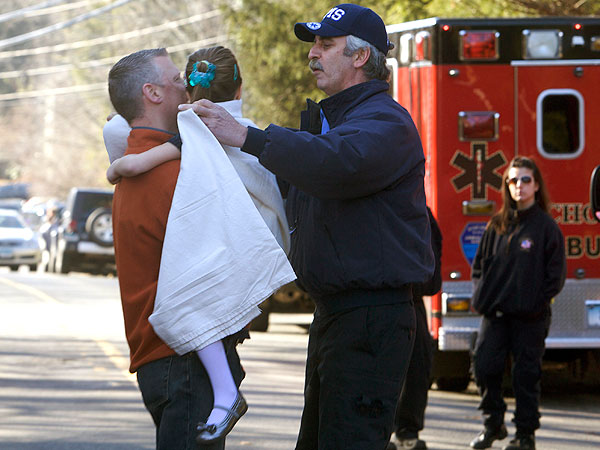ALAMO, Texas (AP) — For years, Sonia Limas would drag her daughters to the emergency room whenever they fell sick. As an illegal immigrant, she had no health insurance, and the only place she knew to seek treatment was the hospital — the most expensive setting for those covering the cost.
The family's options improved somewhat a decade ago with the expansion of community health clinics, which offered free or low-cost care with help from the federal government. But President Barack Obama's health care overhaul threatens to roll back some of those services if clinics and hospitals are overwhelmed with newly insured patients and can't afford to care for as many poor families.
To be clear, Obama's law was never intended to help Limas and an estimated 11 million illegal immigrants like her. Instead, it envisions that 32 million uninsured Americans will get access to coverage by 2019. Because that should mean fewer uninsured patients showing up at hospitals, the Obama program slashed the federal reimbursement for uncompensated care.
But in states with large illegal immigrant populations, the math may not work, especially if lawmakers don't expand Medicaid, the joint state-federal health program for the poor and disabled.
When the reform has been fully implemented, illegal immigrants will make up the nation's second-largest population of uninsured, or about 25 percent. The only larger group will be people who qualify for insurance but fail to enroll, according to a 2012 study by the Washington-based Urban Institute.
And since about two-thirds of illegal immigrants live in just eight states, those areas will have a disproportionate share of the uninsured to care for.
In communities "where the number of undocumented immigrants is greatest, the strain has reached the breaking point," Rich Umbdenstock, president of the American Hospital Association, wrote last year in a letter to Obama, asking him to keep in mind the uncompensated care hospitals gave to that group. "In response, many hospitals have had to curtail services, delay implementing services, or close beds."
The federal government has offered to expand Medicaid, but states must decide whether to take the deal. And in some of those eight states — including Texas, Florida and New Jersey — hospitals are scrambling to determine whether they will still have enough money to treat the remaining uninsured.
Without a Medicaid expansion, the influx of new patients and the looming cuts in federal funding could inflict "a double whammy" in Texas, said David Lopez, CEO of the Harris Health System in Houston, which spends 10 to 15 percent of its $1.2 billion annual budget to care for illegal immigrants.
Realistically, taxpayers are already paying for some of the treatment provided to illegal immigrants because hospitals are required by law to stabilize and treat any patients that arrive in an emergency room, regardless of their ability to pay. The money to cover the costs typically comes from federal, state and local taxes.
A solid accounting of money spent treating illegal immigrants is elusive because most hospitals do not ask for immigration status. But some states have tried.
California, which is home to the nation's largest population of illegal immigrants, spent an estimated $1.2 billion last year through Medicaid to care for 822,500 illegal immigrants.
The New Jersey Hospital Association in 2010 estimated that it cost between $600 million and $650 million annually to treat 550,000 illegal immigrants.
And in Texas, a 2010 analysis by the Health and Human Services Commission found that the agency had provided $96 million in benefits to illegal immigrants, up from $81 million two years earlier. The state's public hospital districts spent an additional $717 million in uncompensated care to treat that population.
If large states such as Florida and Texas make good on their intention to forgo federal money to expand Medicaid, the decision "basically eviscerates" the effects of the health care overhaul in those areas because of "who lives there and what they're eligible for," said Lisa Clemans-Cope, a senior researcher at the Urban Institute.
Seeking to curb expenses, hospitals might change what qualifies as an emergency or cap the number of uninsured patients they treat. And although it's believed states with the most illegal immigrants will face a smaller cut, they will still lose money.
The potential impacts of reform are a hot topic at MD Anderson Cancer Center in Houston. In addition to offering its own charity care, some MD Anderson oncologists volunteer at a county-funded clinic at Lyndon B. Johnson General Hospital that largely treats the uninsured.
"In a sense we've been in the worst-case scenario in Texas for a long time," said Lewis Foxhall, MD Anderson's vice president of health policy in Houston. "The large number of uninsured and the large low-income population creates a very difficult problem for us."
Community clinics are a key part of the reform plan and were supposed to take up some of the slack for hospitals. Clinics received $11 billion in new funding over five years so they could expand to help care for a swell of newly insured who might otherwise overwhelm doctors' offices. But in the first year, $600 million was cut from the centers' usual allocation, leaving many to use the money to fill gaps rather than expand.
There is concern that clinics could themselves be inundated with newly insured patients, forcing many illegal immigrants back to emergency rooms.
Limas, 44, moved to the border town of Alamo 13 years ago with her husband and three daughters. Now single, she supports the family by teaching a citizenship class in Spanish at the local community center and selling cookies and cakes she whips up in her trailer. Soon, she hopes to seek a work permit of her own.
For now, the clinic helps with basic health care needs. If necessary, Limas will return to the emergency room, where the attendants help her fill out paperwork to ensure the government covers the bills she cannot afford.
"They always attended to me," she said, "even though it's slow."
___
Sherman can be followed on Twitter at https://twitter.com/chrisshermanAP .
Plushnick-Masti can be followed on Twitter at https://twitter.com/RamitMastiAP .













